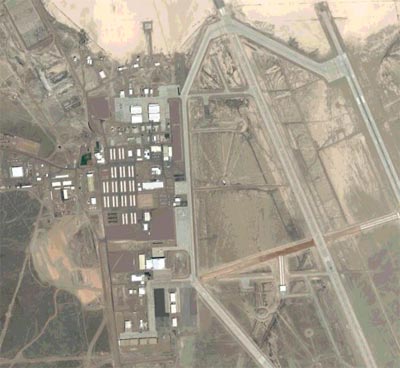Was This the Work of Al-Qada?
Yunji de Nies: Robert, two questions.
The first one is, we hear so many different timeframes as to when this oil well will actually be under control. What is the best-case and what is the worst-case scenario? I mean, I’m hearing everything from a matter of days to 90 days in the worst case. What is your sense of timing?
(CROSSTALK)
GIBBS: Well, I would direct you to B.P. in terms of what — what they might say.
Look, I think there are a series of processes that, as you said, could take — could take a matter of days. I think — I forget the exact term of the structure of putting on top of the — the valve would take probably another week. The original well took 90 days to drill and it could take — it could take that long to drill a relief well.
de Nies: So if it takes up to 90 days, is that something that the president is comfortable with?
GIBBS: Well, I’m not sure the president can alter the pace of drilling in the Atlantic. We’re — I mean in the Gulf. I’m sorry.
We’re — I used this phrase yesterday. Secretary Salazar used this phrase. And that is, we’re going to do what we have to do. We will keep our — as Secretary Salazar said, our boot on the throat of B.P. to ensure that they’re doing all that they — all that is necessary while we do all that is humanly possible to deal with this incident. Absolutely.
de Nies: I wonder, on the plane ride back yesterday, did the president share any personal reflections with you about what he saw on the ground, how he’s feeling about all this?
GIBBS: Well, you know, I think the — the — I talked a little bit about this on the trip home.
You get a real — you get a real sense of the — the — the topography, the geography of — of what we’re dealing with, and how — the president said that — you could see from the air the wetlands in that area obviously have undergone lots of change, and not for the good, over the past many years.
The president said you could see that from the air.
Speaking with the parish presidents, speaking with the local fishermen, you get a sense of what’s at stake, both environmentally and economically.
And I think the president reiterated to all of us, as he had said — has said over many, many days, and that is, we must do all that we can, as aggressively as we can, to — to combat this incident.
The Connecticut man arrested in the failed Times Square car bombing had lived in the United States for most of the last decade and was naturalized as an American citizen in Bridgeport last April, officials said on Tuesday.
The suspect, Faisal Shahzad, 30, was taken into custody late Monday night at Kennedy International Airport when law enforcement agents boarded a plane bound for Dubai that had just pulled away from the gate.
Airplanes had figured in his life in the United States: A small jet had been sketched over the Bridgeport skyline on the cover of a University of Bridgeport booklet for foreign students that he had kept for years but was found in the trash outside his home in Bridgeport. Mr. Shahzad apparently went back and forth to Pakistan often, making his last trip in February, according to a Pakistani intelligence official who said he had left on an Emirates flight from Islamabad, the capital.
The official, who spoke on the condition of anonymity, said Mr. Shahzad had traveled with three passports, two from Pakistan and one from the United States. It was not immediately clear where he had traveled during his last visit or whether he had flown to Pakistan directly from the United States, or had made stops along the way.
Mr. Shahzad was naturalized in a ceremony in Bridgeport on April 17 of last year before a federal magistrate, Holly B. Fitzsimmons, probably with dozens of others.
Within six months, his name would appear on a case in another Connecticut court, on a foreclosure proceeding brought by the mortgage arm of Chase bank. By then he had a thoroughly American trail of addresses, receiving junk-mail come-ons for credit cards that were forwarded from one place to another.
Based on documents discarded outside his house that were found by The Times, Mr. Shahzad appears to have attended a university program in Pakistan that was affiliated with the University of Bridgeport starting in 1997. A résumé said he was studying for a bachelor of science degree with “specialization in finance.” He said he spoke Urdu, English and Pashto and liked to work on computers, play sports and “talk to people from different backgrounds.”
He also attended Southeastern University in Washington, where a transcript for the spring of 1998 showed that he earned D’s in English composition and microeconomics, B’s in Introduction to Accounting and Introduction to Humanities, and a C in statistics. In 2000, he transferred to the University of Bridgeport, where he received a bachelor’s degree in computer science and engineering.
For a while, Mr. Shahzad apparently worked as an accountant for a firm that placed temporary employees. Among the discarded documents was a time card from Elizabeth Arden, the cosmetics maker, indicating that he had worked at its Stamford office in 2001. Officials at Elizabeth Arden refused to comment.
The documents also included a copy of what was apparently an old Pakistani passport — it expired in February 2000 and listed Mr. Shahzad’s occupation as “student” — and a United States student visa that expired at the end of 2002.
Also discarded outside the Bridgeport house — where Mr. Shahzad was leasing a two-bedroom apartment through early next year — were forms from a lawsuit about a $218,400 loan from a mortgage arm of Chase bank.
The mortgage covered a single-family home with an assessed value of $242,690 on Long Hill Avenue in Shelton, Conn. The bank took Mr. Shahzad and his wife, Huma Mian, to court. One or both appeared before the court last fall and filed affidavits about their debts that were entered in the court record as recently as last month.
Debbie Bussolari, a dental technician who lives across the street, said the couple “didn’t live here very long, and then it was vacant again.” She said the police had been called several times to break up teenage parties that took place there after the Shahzads left.
© 2010 Benjamin Wright. All Rights Reserved.









